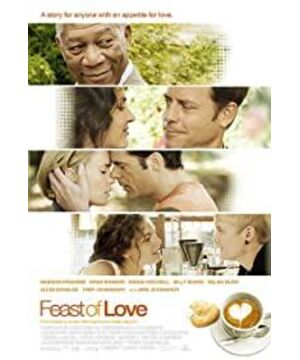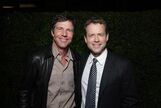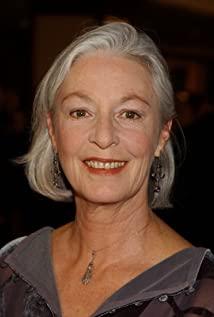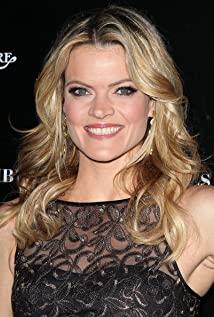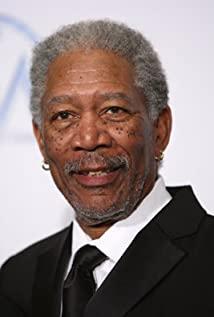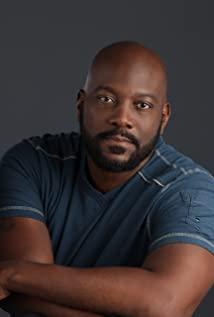All the stories happened in a coffee shop in the suburbs of Portland, Oregon. We will witness how the residents here use love through the eyes of a professor and writer who lives here, Harry Stevenson. Healing trauma and driving away injuries: some happen between young people and old people; some happen between parents or lovers; some happen between beauties and violent men...even between humans and animals In between, Harry was sitting there, sipping a cup of strong coffee, observing all the confusion, trauma, destruction, and sentimentality caused by love, and couldn't help being in awe. He greedily enjoyed the touch of being immersed in other people's stories, and attentively wrote down everything that was happening and about to happen around him--including himself.
Harry started with his old friend Bradley. This stubborn and romantic coffee shop owner estimated that he would never be able to get rid of his stinking ailments, because he was always looking for misplaced relationships in the wrong places, including him. The current wife Catherine. Then there is Diana, who "has a leg" with Bradley. As a successful real estate agent, her EQ is basically zero. She has an underground relationship with a married man, and she is alone in this unspeakable affair. Secret; there is also the young and beautiful Chloe, who has just moved here. She works as a clerk in a coffee shop. This aggressive girl has to fight against fate. She hopes to be able to cultivate her lover Oscar, who is destined to be troubled, and step into the auditorium... However, Harry refused to look at his own life. His venerable wife was looking for a way to break through his sad line of defense, because their son had just passed away.
Everything converges into a great love story. No one can escape from being loved, confused, and happy. In the end, they are all emotionally compensated for the incredible charm of life.
The film is adapted from a novel of the same name created by Charles Baxter that has received high praise in the literary world. It is all about love stories. It is lively but also carries bittersweet questions and lives. The film’s director is Robert Benton, who has been in the film industry for 40 years.
It turns out that love has so many and surprisingly different images, but the director Robert Benton expresses all of them in the film "Feast of Love" in a way of compliment. If you have seen Benton's works, you will find that he is a director who is very good at recording the kind of trouble-making inner alternation and interaction of emotions. Benton entered Hollywood as a screenwriter, and his first work "The Male and Female Thief" won him an Oscar nomination for best screenwriter. After that, Benton contributed a large number of countless love stories with more acute themes...Almost 10 years later, he got the title for a comedy "The Cramers" with a very insightful view on divorce. A double Oscar-in addition to the best director, he is also the winner of the best adapted screenplay, and the film tells how people who once loved each other face the situation of breaking up, betray their promises. Then, he won the third Golden Man at the Oscars in 1985. "In My Heart" finally won the best original screenplay award. This time, Benton explored the relationship between family members through the film. For the complexity of love, he was also nominated for best director.
Looking at all of Robert Benton’s film works, he seems to have spent the past 40 years obsessed with emotions of different types and times. It seems that no director is more suitable to analyze this Charles Benton than Benton. A novel by Baxter that gathers all forms of love. Baxter’s novels give people a feeling similar to bringing "A Midsummer Night’s Dream" to the suburban environment of modern society. It is a cross between true love and absurd forbidden love. Every closed door of this community is because of The bondage of love and reason burns: there are young lovers who want to find a sense of security from each other; there are also two people who can't beat each other by eight strokes, but accidentally embrace each other and become lovers; at the same time, there are many people who are equivalent to playing with fire. Moral extramarital affair; and the old couple who lost their only son, wanting to find comfort and warmth from each other, so as to wash away the pain of "forever losing my love"... Baxter used a whole novel to find all kinds of All kinds of love, he just wants to tell the readers that the love that brings us so much trouble and distress in our lifetime is also full of nobility, elegance and beauty. Therefore, this story can give the audience not only fun and beauty, but also rich emotions. Human is a kind of social animal, and we need to interact with other people everywhere in our lives. This is what each of us will experience and feel personally.
The New York Times commented on Charles Baxter's "Feast of Love": "What Baxter showed us is a kind of hard-won generosity, which comes from the soul and spiritual level. Although what he tells may be all It is the emotional needs of some people in daily life, but through the paper he presented a pair of glowing eyes and a silver bell-like voice, introducing the entire community to us in a unique way.
The fictional version of "Love Feast" has many admirers, including the famous producers Tom Rosenberg and Gary Lucchesi from Lakeview Pictures. For a long time, they seem to have a special hobby, that is, to find great literary works, then buy the copyright, and then find great filmmakers and put them on the big screen. They have a strong feeling for this kind of "strong cooperation". For example, the film "Million Baby", which won the Oscar for Best Picture, was directed by Clint Eastwood and written by Paul Haggis...it was adapted from F·X. · A short story about boxers created by FXToole.
For Charles Baxter’s novels that embraced the most complex, unpredictable, and most important topics that humans need to face in such a huge and fearless way, Tom Rosenberg really has no choice. Resisting the attraction it brings, he said: "The Feast of Love represents all life-related journeys, life and love are indispensable. I am 51 years old, and my wife just celebrated the 28th wedding anniversary. Day. I really can’t imagine how to walk such a long road of life without your happy partner by your side. Every morning, as long as you can sit in the kitchen with your wife and drink a cup of coffee, you can bring it Give me a pleasant mood for a day-and this is also what makes "Feast of Love" so good: it is praising those emotional moments that support us to continue our lives without any signs.
And Gary Lucchesi is in the novel. Attracted by the profound universality and multi-faceted nature, he was also moved because the story contains so many emotional entanglements-from friends to lovers, from lifelong partners to family members, Lucchesi said: "When When you see love and family affection slowly changing through the washing of time, you will be deeply fascinated by it. "The Feast of Love" tells the different views of love of three generations. At the same time, there are also some fragmentary relationships. I believe that no matter who you are, you will have an irrepressible resonance with such a story. "
Because Tom Rosenberg and Gary Lucchesi's love for the novel "The Feast of Love" is too expressive, they have become extremely cautious and cautious in the process of seeking to adapt this story into a movie. They do realize that this is not a simple task, because from the beginning, Charles Baxter’s story is full of characters covering a very wide range, and each one is told in a unique style. An emotional story of your own.
The central character of this modern fable is Harry Stevenson, a philosophy professor overwhelmed by grief. He has a very keen view of everyone around him, but he never evaluates himself. Through Harry’s eyes, the reader witnessed in turn how his friend Bradley Smith was caught in the stimulus of blind love and constant rejection, when Bradley’s wife Catherine was unable to extricate herself After a woman left him, he had an emotional entanglement with Diana... However, this real estate agent without any romantic cells did not intend to end her other immoral relationship-with a married man. As for the young couple Chloe and Oscar, they are still in the pure and wild passion stage, but the bright future they expect is full of ups and downs. One is because of Oscar’s violent and humiliating father, Bart. At the same time, Oscar's own hidden mental illness is also a potential crisis.
Charles Baxter also plays a role in this novel, intertwined with all the characters and the lives of the kind of people they represent. This approach makes the story more colorful and full of sharp insights. And sharp wisdom-Alison Burnett, who agreed to write the script for the film, inevitably found that he would have a very heavy job. First of all, Burnett had to find a shortcut to enter the core content of the novel, and then retell the story in a more advanced way, in the form of movies, not literature. He finally found it and chose to combine the roles of Baxter and Harry Stevenson into one. This means that only one person who tells the story will appear in the film, and he will draw all the characters out of the track. After passing the collection, and then witnessing how many helpless webs of love are woven by those characters with emotions, Gary Lucchesi said: "Burnett came up with a very smart way."
In addition, Alison Burnett also changed the story narrated in the script to “now in progress.” Tom Rosenberg explained: “Most of the original novels are content that exists in memories, but we hope After it arrives on the big screen, it can be more dramatic." But the most dramatic change in the script was the tragic death of Harry and Esther’s son Aaron, because in the novel, this character is alive, but Struggling constantly in drug addiction. Gary Lucchesi said: "For the film, the biggest change is the addition of a theme that is not in the novel'Lost Love'."
View more about Feast of Love reviews


